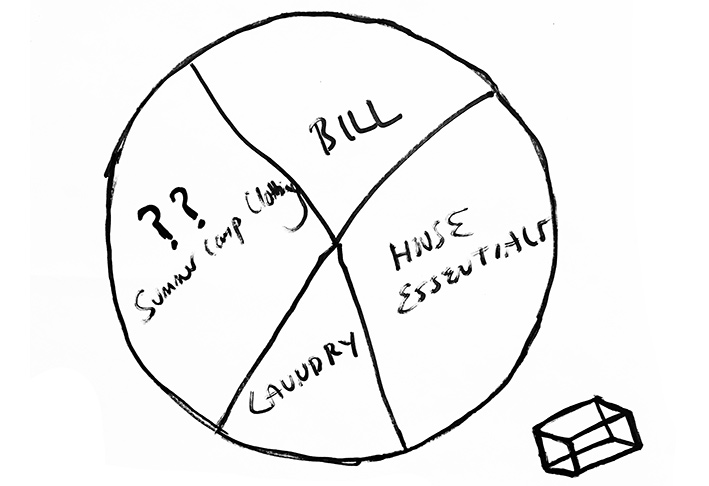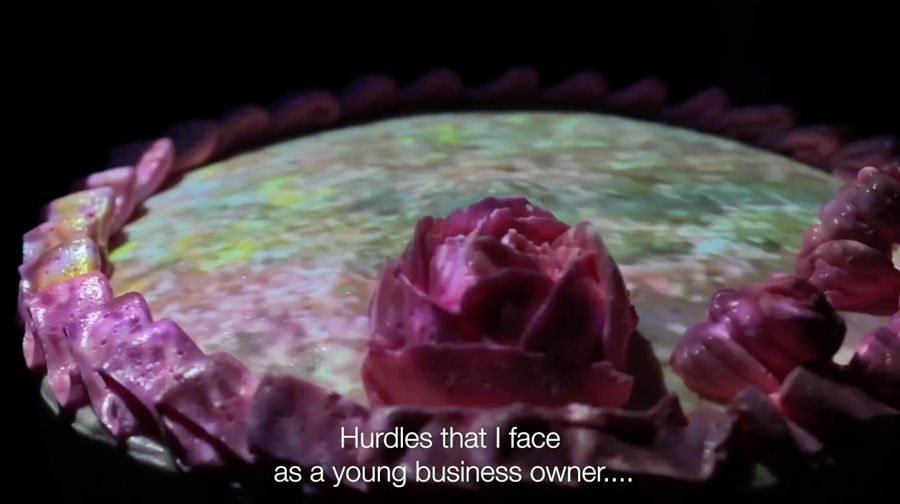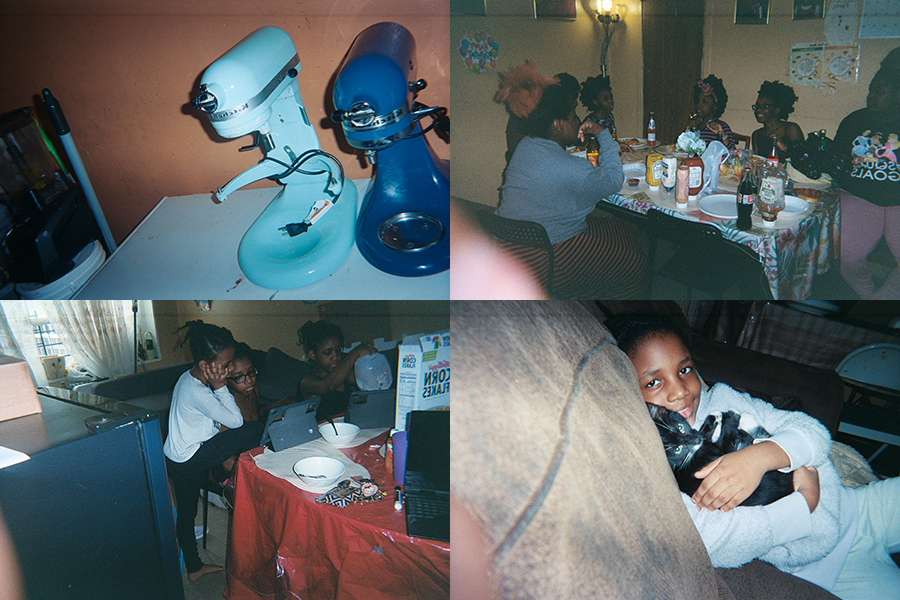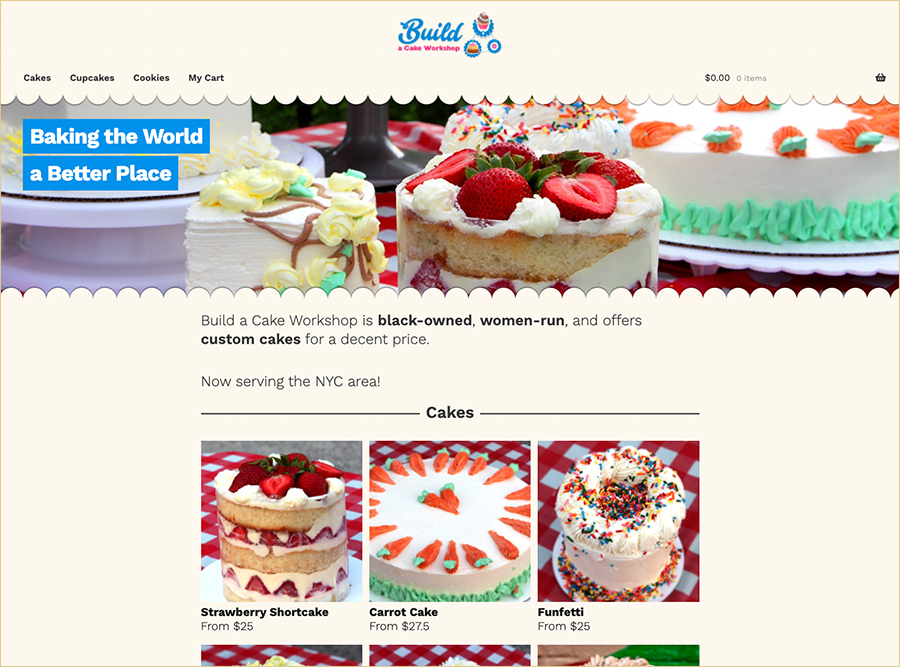
No Title; No Deed provided a monthly unrestricted $450 direct cash assistance to two families living in Central and South Brooklyn over a 6-month period. The $7,500 was provided by Onassis Foundation USA’s Eureka Grant, of which 75% was distributed with the remaining left for taxes. The recipients were: Florence Alpha, a young female entrepreneur starting a bakeshop from her family residence in a NYCHA Housing complex, and A, an unemployed young mother of two teenagers and avid mutual aid volunteer, who used the money to catch up on late bill payments and general everyday expenses.
Selection of recipients
As an artist who previously had only been on the receiving end of grants and commissions, devising a granting system was a new responsibility. I wanted to balance making the funds available expediently with selecting recipients fairly. What did “fair” mean in this context? Open lotteries are considered more fair than applications, but they also require facilitating a pool of interested recipients, a task I could not take on. I decided that “fairness” would have to mean something relative to my individual capacity, and may be limited to my own network of mutual aid and volunteer groups.
I reached out to my contacts and asked for a list of Brooklyn residents the groups were already serving, or were in their larger volunteer network. Both the groups and myself acknowledged the shortcomings of this process and despite knowing the recipients benefited tangibly from the project, the money distributed still felt like a drop in the bucket.
In retrospect, the goal I accomplished was actually delivering this cash to those furthest from the original source of funding.


Photos of Florence’s baking equipment, family, and cat from a disposable camera I gave her, taken in response to a series of prompts. Photos by Florence Alpha
Initial proposal and subsequent pivot
For six months, kinetic art objects will live inside the homes of artist-identified low-wage or unemployed individuals or families of color living in Chinatown, North, or Central Brooklyn. The state of the art objects’ kinetic forms will be perpetually broadcasted on a streaming and interactive website. The consenting Hosts of this art object will receive a stipend for renting out their living space as well as for their labor in maintaining the art object. An algorithm specifically devised for this commission will determine the fixed base amount all Hosts will receive, in addition to setting a fluctuating Bonus amount tied to changes in the real estate market of their neighborhood. The algorithm will be made completely transparent to the Hosts.
In the initial project proposal, the goal was to kill two birds with one stone and “reconfigure the ontological status of art, exhibition space, and real estate while providing material support to families and individuals affected by Covid-19 and the economic recession.” I wanted to ask: what are the limits of engagement of the cultural institution with the public? Why don’t more artists who receive material support from institutions redistribute their funding more frequently? What is the role of privately funded organizations in times of crisis? What is the role of the individual? What can the arts do? When creating the proposal, I hedged my bet against the Onassis Foundation USA (part of the larger Greek-based organization) just funding a local mutual aid project and “just give away money” without a conceptual art or poetic flourish. After receiving the commission, I chose the project title "No Title; No Deed" to allude to the racial inequality of home ownership across the country, especially in New York City. It also incorporates a provocation on the word "deed", as an act of kindness or evil.
The project also went through an important shift as I met and spoke with A and Florence: as obvious as it is, the “Hosts” of these sculptures (which never materialized), are real people and not just an equation in my art project. I no longer wanted to conduct myself and execute the project according to my initial proposal, which seemed to me to place the “artist” above its “subject” with cold instrumentality. I did not follow through with the sculptures, the streaming website, or the algorithm. Instead, I sent money through Venmo or Paypal transfers, or sometimes withdrew cash from the ATM and handed over in an envelope on a street corner. I became a sort of mentor for Florence’s small baking business: taking photos for her cakes in front of the Dumbo bridge, designing and coding her first web shop, and producing a short documentation film featuring her take on the “American dream” of being a small business entrepreneur. Since the project, Florence started considering the impact she can make in her community: through teaching the basics of baking to children in her NYCHA community.


The homepage of Florence's first website which I designed for her. She has since then transitioned to using another web shop platform. Design and development by Fei Liu
In this sense, Florence and A became participants in the project instead, with each negotiating their own unique parameters of our engagement. For example, I brought A to the soup kitchen volunteering sessions I was co-managing at the time, and was a confidant for her personal matters. We made little to no visual “artistic output" together. Throughout this process of creating a social-financial-art practice, I reflected continuously upon the imbalance of power in this arrangement and on what I was asking my participants to do. Despite the financial support being positioned as freely given with no strings attached, I did expect some interaction from my participants, and realized that the conflicts or miscommunications that arose were due to my unarticulated expectations. I learned a few lessons about my own limitations, and the opportunities and challenges of insisting on keeping our relationships vague, likely due to my fear they come across overly transactional. However, like they always say, intention does not equal impact.
Continuation
Some questions that have arisen from this project:
- What are other configurations and orientations of this sort of redistributive art?
- How does “social-financial-art” become more sustainable, and more collective?
- Where does this social art practice lie between "solidarity", "charity", and "mutual aid"?
- What power differentials lie in this kind of art practice?
- If this project is to be considered participatory art, how has the artistic intervention of financial aid created unexpected impact in both the artist and participants’ lives?